The Under-Secretary-General for Political and Peacebuilding Affairs today (23 Jun) briefed the Security Council on the situation in Ukraine.
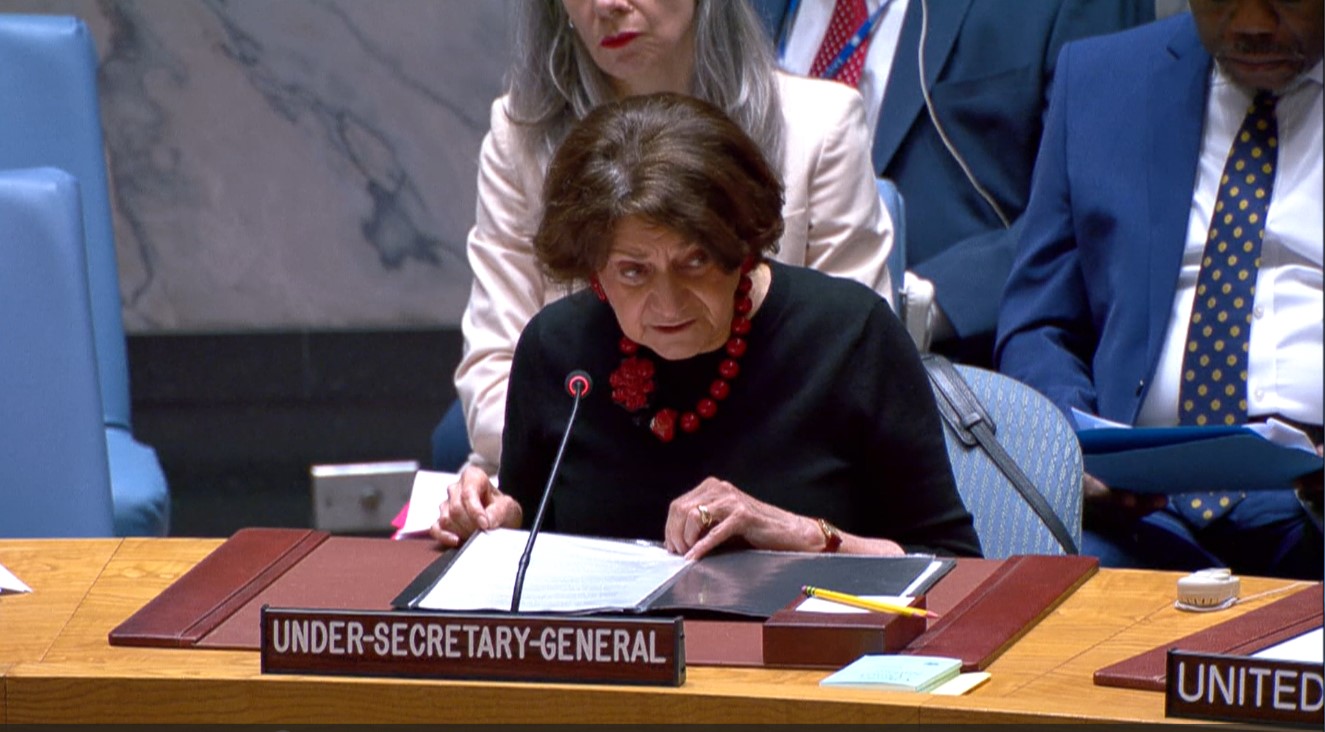
The chief of UN political affairs Rosemary DiCarlo said, “Attacks against civilians and civilian infrastructure are prohibited under international law. All such attacks must stop immediately, whether they be on Ukrainian, Russian controlled, or Russian territory.”
Since the last time she briefed the Council on Ukraine, the war has escalated and become more fluid and unpredictable. She stressed that the impact of the intensifying violence on civilians remains gravest concern, adding that Russian missile barrages and drone attacks across Ukraine nearly tripled in May.
The Office of the High Commissioner for Human Rights (OHCHR) has recorded 24,862 civilian casualties to date. Since February 2022, OHCHR has also verified a total of 1036 attacks impacting educational and medical facilities. 649 attacks occurred on territory controlled by the Government of Ukraine, 301 on territory occupied by the Russian Federation and 86 on territory that was contested at the time of the attack.
On the destruction of the Kakhovka Dam, DiCarlo said that while the exact circumstances remain unclear, this is a catastrophe that will have massive adverse consequences.
She said, “Concerns continue to mount that the floodwaters could shift landmines into previously cleared areas, further endangering lives.”
The chief of UN political affairs continued, “Damaged sewer systems and the lack of clean water heighten the risk of waterborne diseases. Inundated farmland is a further blow to the already beleaguered agriculture and food production sector.”
She reiterated that the UN is” already engaged in assessing the extent of the environmental and ecological needs stemming from this human-made catastrophe.”
As part of its immediate response to the incident, the UN and humanitarian partners have rushed to deliver supplies and evacuation support for hundreds of thousands people in the affected area, DiCarlos noted.
However, there are still people that the UN is unable to reach, especially in low lying communities under Russian control. The Russian Federation has so far declined the UN’s request to go to these areas.
DiCarlo urged the Russian authorities to “act in accordance with their obligations under international humanitarian law and ensure safe and unfettered access to all areas in need. Aid cannot be denied to people who need it.”
The Under-Secretary-General also stressed, “We remain deeply concerned about the cases of forcible transfers of protected persons, including children, to territories of Ukraine under Russian control and consequent deportations to Russia.”
DiCarlo also highlighted “The announced deployment of Russian tactical nuclear weapons in Belarus, for example, and the accompanying rhetoric have raised regional tensions further.”
She urged all involved to “act responsibly and in accordance with international obligations. We reiterate that any threat to use nuclear weapons is unacceptable.”
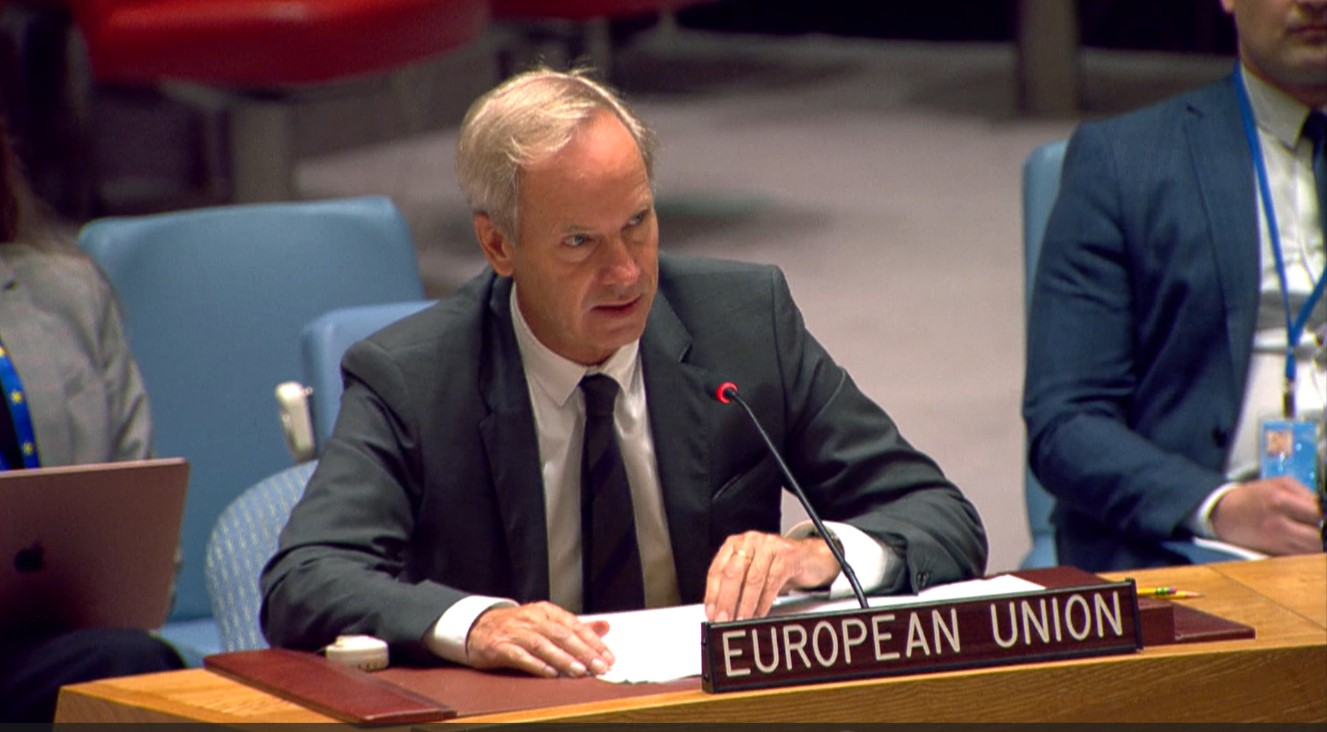
Olof Skoog, the head of the Delegation of the European Union told Council member that they must “distinguish between the victim and the aggressor.”
He explained, “in this war of aggression, under the UN Charter, Ukraine has the right to self-defense against Russia's attacks in order to restore its territorial integrity. It also has the right to request international support for such as the EU was committed to support Ukraine in this regard for as long as it takes.”
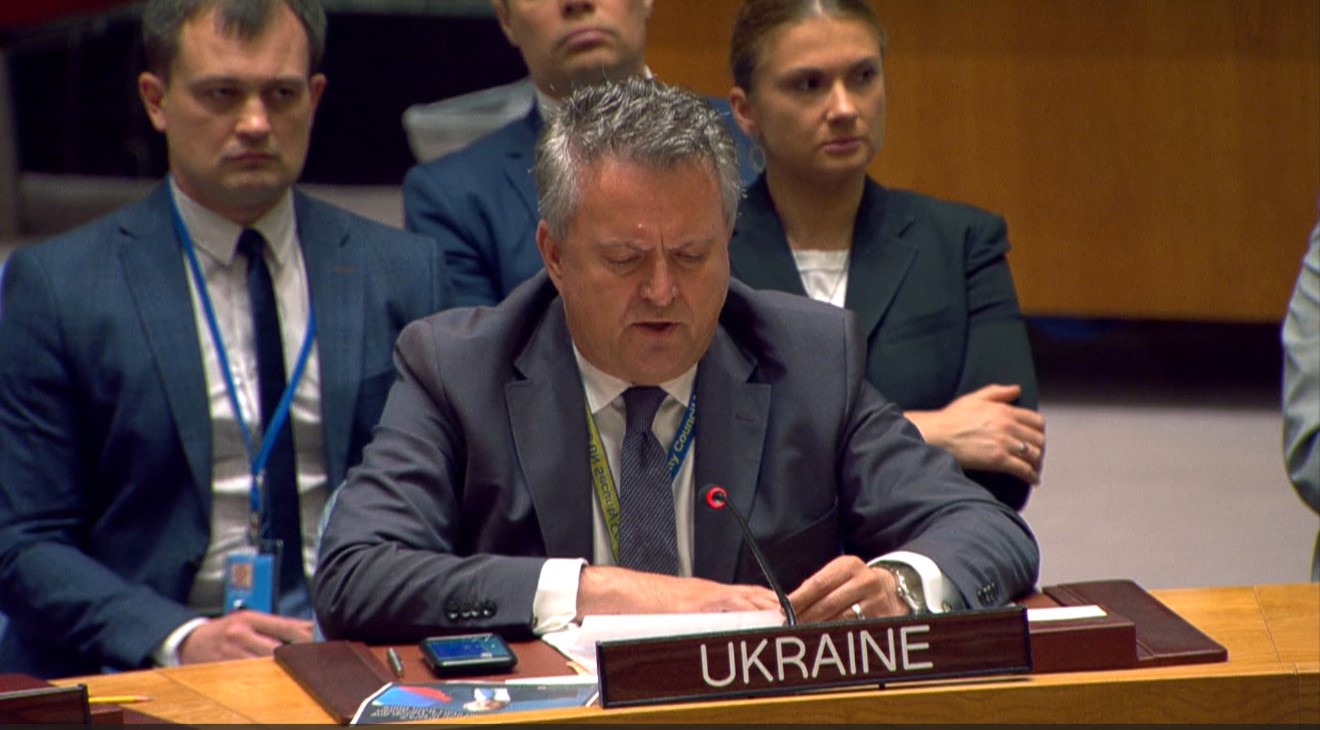
Ukrainian Ambassador Sergiy Kyslytsya also spoke at the Council.
He stated that according to intelligence information, Russia is considering a scenario of a terrorist attack at the Zaporizhzhia Nuclear Power Plant with radiation leakage.
Ambassador Kyslytsya reiterated, “We therefore urge the international community to take the threat of this act of nuclear terror seriously and to step up pressure on the Russian Federation to prevent these menacing developments, including but not limited to introducing strengthened restrictive measures against the Russian nuclear industry and military-industrial complex.”
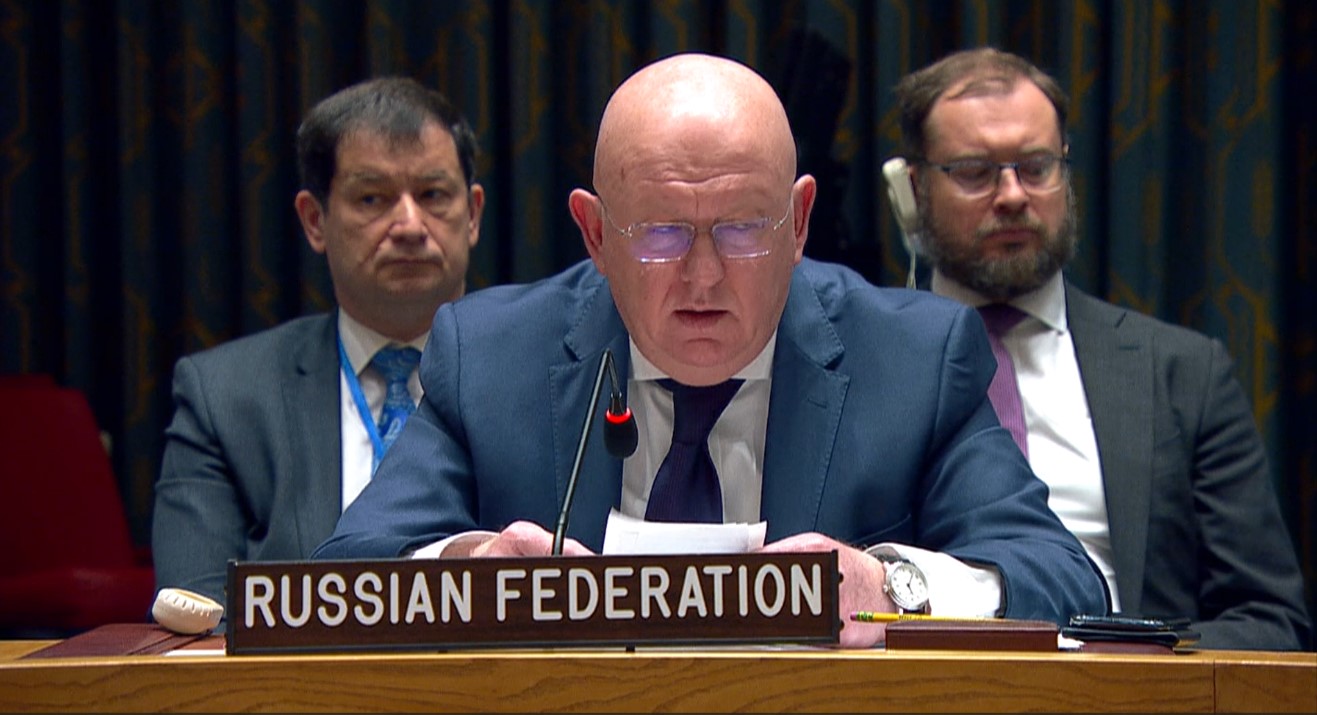
Russian Ambassador Vasily Nebenzya also briefed the Council.
He said, “Today, Madam President, we are seeing further attempts by the United States and its allies to force the UN Secretariat to carry out the so-called investigation into alleged provisions for the use of Iranian drones in Ukraine.”
Ambassador Nebenzya continued, “To put it concisely, we categorically deny these fabrications. There has been no credible evidence provided from the Kyiv regime, neither to us nor the Iranians who for the sake of this, agreed to bilateral consultations
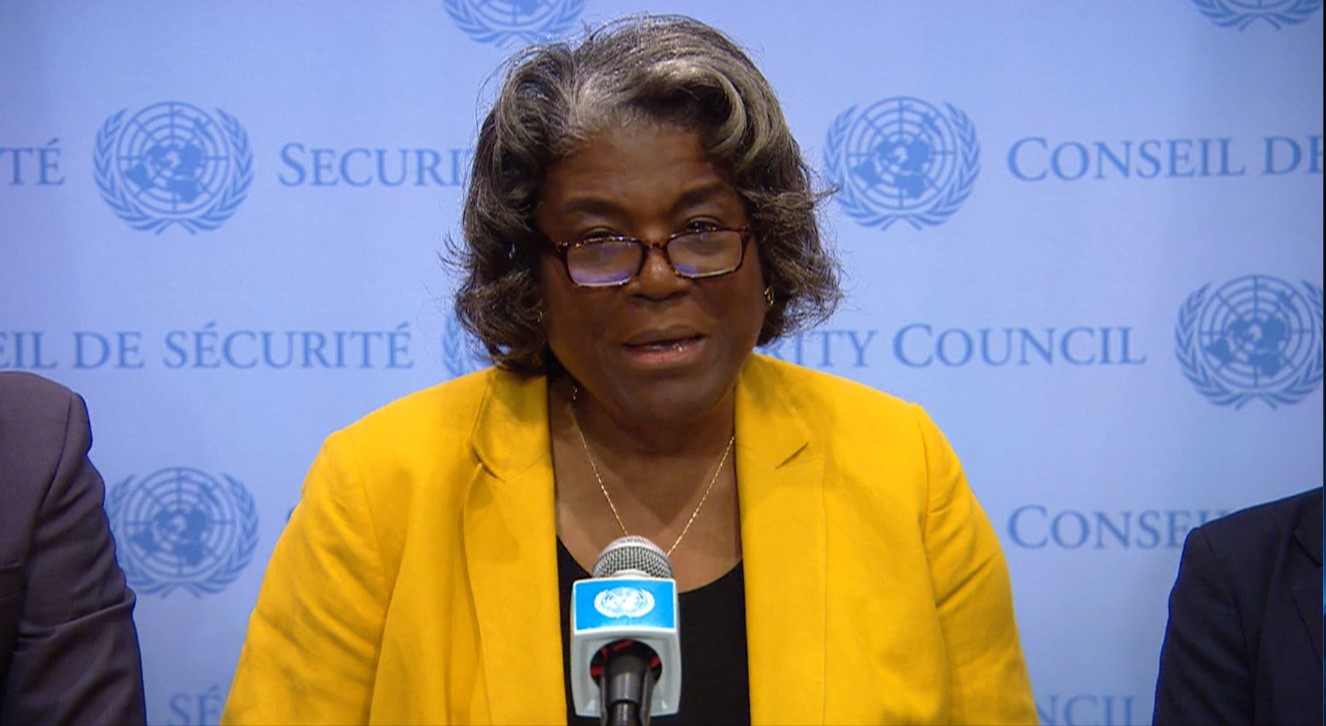
Earlier today, US Ambassador Linda Thomas-Greenfield delivered at joint on the use of Iranian Unmanned Aerial Vehicles in by Russia against Ukraine, on behalf of Albania, France, Ukraine, the United Kingdom, and the United States.
Ambassador Greenfield said, “Russia’s and Iran’s actions violate UN Security Council Resolution 2231. That resolution prohibits all countries, including permanent members of the Security Council, from transferring these types of weapons from Iran, absent advance Security Council approval. Approval was, of course, not given.”
She added, “Ukraine, the United States, France, the United Kingdom, and other countries have duly reported these violations to the United Nations and supplied the UN with additional information and analysis. The United Nations must respond to growing calls from the international community to investigate these violations.”
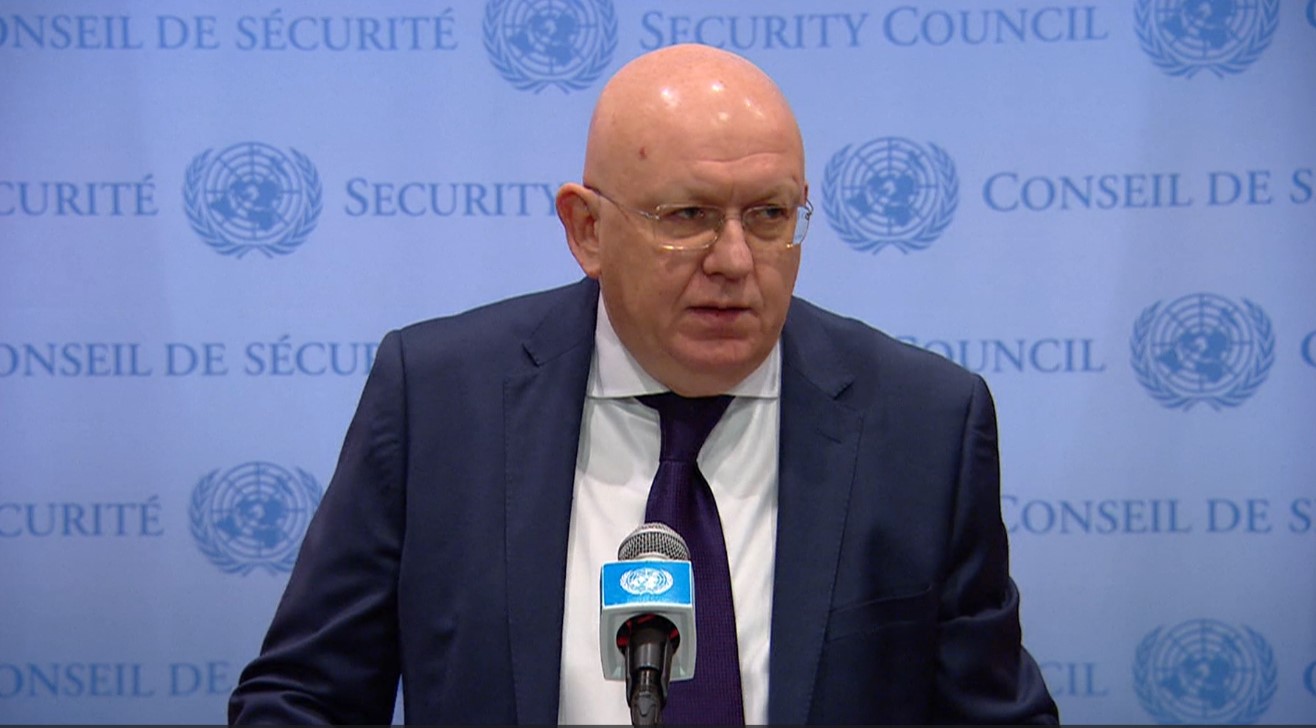
Russian Ambassador Vasily Nebenzya also spoke to reporters before the Council’s meeting.
He said, “We categorically rejected these baseless allegations, blatant attempts to deliberately mislead the international community.”
Ambassador Nebenzya added, “the arguments that our colleagues are providing do not withstand any scrutiny and simply lack of any legal or technical grounds. Their assumptions are limited to some kind of open-source information and vague assessments. They provide incoherent photos of hardly identifiable debris of alleged UAVs.”
He said, “it's all about fake political narrative.”



